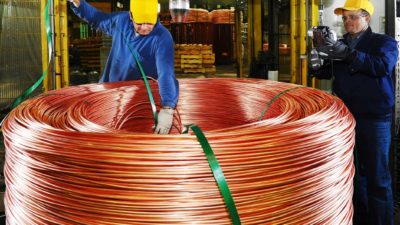Much has been made of lithium in recent years. As the 'key' to a future filled with renewable energy, electric vehicles and the absence of fossil fuels, this 'green metal' has been a major source of excitement and optimism for ASX investors in recent years. You only need to look at prominent lithium stock prices like Pilbara Minerals Ltd (ASX: PLS) and Core Lithium Ltd (ASX: CXO) over the past year to two to see this in action.
Today, it can be said that lithium-ion batteries represent the peak of rechargeable battery technology. But what if this was to change? After all, it was only a decade or two ago that nickel-cadmium batteries were the dominant technology.
Well, lithium-ion batteries' days might be numbered too, if an article from Chemistry World is to be believed.
According to the article, machine learning is being used to discover the next generation of battery materials. Prominent amongst these are fluoride-ion batteries. This technology, it is predicted, is "tipped by some to rival, or even replace, lithium-based [batteries]".

Image source: Getty Images
Could lithium batteries become redundant?
Here's some more of why fluoride-ion batteries have scientists so excited:
In theory, fluoride-ion systems are ideal for batteries in everything from electric vehicles to consumer electronics. That's because fluoride ions are lightweight, small and highly stable. Fluoride is also cheaper than lithium and cobalt that are required for lithium-ion batteries. What's more, calculations suggest that fluoride-ion batteries have potential for greater storage capacity than lithium-ion technologies.
If this technology becomes mainstream, it obviously has huge implications for lithium stocks. Lithium is a metal with all kinds of uses, of course. But if the metal does not play a huge role in the electrification of the world over the next decade or two, it's arguably fair to say that a big chunk of the 'lithium bull case' could be flawed.
In saying that, there are reportedly still some massive barriers to fluoride-ion technology. The article describes research as "still in its infancy". The chemistry is difficult, with "not many materials… known to conduct fluoride ions, a vital requirement". However, scientists at the University of North Carolina in the United States are still working through these issues. Researcher Scott Warren told Chemistry World that, "we've just submitted a patent for some of the most exciting compositions" in their research into the new battery technology. Exciting stuff.
Who knows what the future for renewable energy and batteries looks like. But perhaps investors shouldn't be so convinced lithium-ion batteries will always be the dominant technology.







